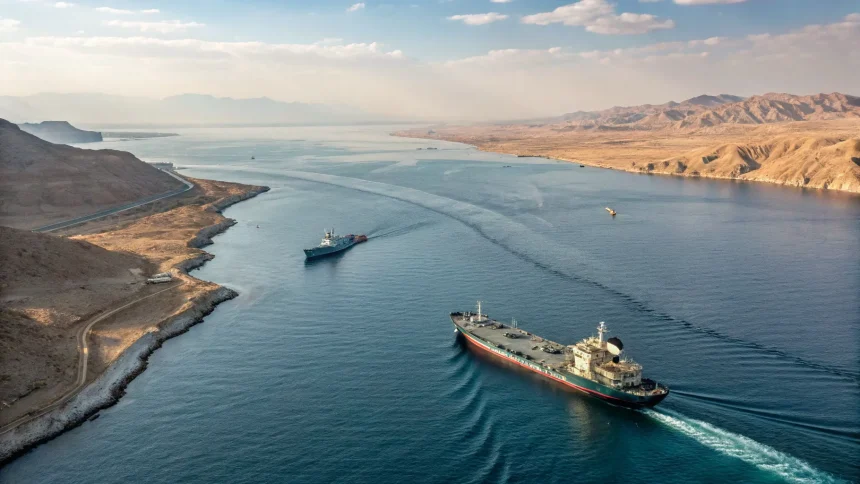Global attention has intensified on the Strait of Hormuz following recent Israeli and U.S. military actions against Iran. The narrow waterway, which serves as a crucial maritime route for approximately 25% of the world’s seaborne oil, faces potential disruption as regional conflicts escalate.
Security analysts are monitoring Iran’s capabilities and intentions regarding the strait, with growing concerns that Tehran might attempt to close this vital shipping lane in response to military pressures. Such a move would have significant implications for global energy markets and international trade.
The Strategic Importance of the Strait
The Strait of Hormuz connects the Persian Gulf to the Gulf of Oman and the Arabian Sea. Its strategic location makes it an irreplaceable passage for oil tankers transporting crude from major Middle Eastern producers to markets worldwide.
At its narrowest point, the strait measures only 21 miles wide, creating a natural bottleneck for maritime traffic. This geographical constraint makes the waterway particularly vulnerable to disruption, whether through military action, naval blockades, or other hostile activities.
Energy security experts note that any interruption to the flow of oil through the strait would immediately impact global energy prices and potentially trigger economic ripple effects across multiple sectors dependent on stable fuel costs.
Iran’s Leverage and Capabilities
Iran possesses several military options for threatening traffic through the strait. The Iranian Revolutionary Guard Corps Navy maintains a fleet of fast attack craft, submarines, and anti-ship missiles specifically positioned to target vessels in these waters.
Military analysts assess that Iran could employ various tactics to disrupt shipping, including:
- Naval mines deployed across shipping lanes
- Harassment of commercial vessels by military boats
- Direct missile strikes on tankers
- Seizure of foreign ships
While Iran has threatened to close the strait during previous periods of tension, it has thus far refrained from taking such drastic action. This restraint likely stems from awareness that blocking international shipping would invite severe military and economic consequences from the United States and its allies.
Insurance Markets as Tension Indicators
Maritime insurance rates provide a reliable barometer for measuring risk in conflict zones. As tensions escalate in the Middle East, insurance premiums for vessels transiting the Strait of Hormuz have seen notable increases.
Shipping companies must secure war risk insurance when operating in designated high-risk areas. The cost of these policies fluctuates based on underwriters’ assessment of danger levels. Recent premium spikes suggest insurance markets are pricing in heightened risks of attacks or disruptions.
“Insurance markets often react before official warnings are issued,” explains a maritime security specialist familiar with the region. “When we see premiums climbing for Gulf routes, it signals that professional risk assessors believe the threat level has materially changed.”
Some shipping companies have reportedly begun routing vessels away from the strait or requesting additional security measures, further indicating growing concerns about safety in the waterway.
Global Economic Implications
Any disruption to oil flows through the Strait of Hormuz would have far-reaching economic consequences. Energy economists predict that even a temporary closure could cause oil prices to spike dramatically, potentially exceeding $100 per barrel.
Nations most dependent on Middle Eastern oil imports, particularly Asian economies like China, Japan, and South Korea, would face immediate supply challenges. Western countries, while generally maintaining strategic petroleum reserves, would still experience market volatility and price increases.
The global shipping industry would also face significant disruption, as vessels would need to be rerouted around the Arabian Peninsula – adding thousands of miles and substantial costs to voyages between the Persian Gulf and European or American ports.
Financial markets have already begun factoring in these risks, with energy futures contracts showing increased volatility as traders attempt to hedge against potential supply disruptions.
As military activities continue in the region, the international community remains watchful of developments that could threaten this crucial maritime passage. The situation underscores the persistent vulnerability of global energy supply chains to regional conflicts and the strategic importance of key maritime chokepoints in international trade.









